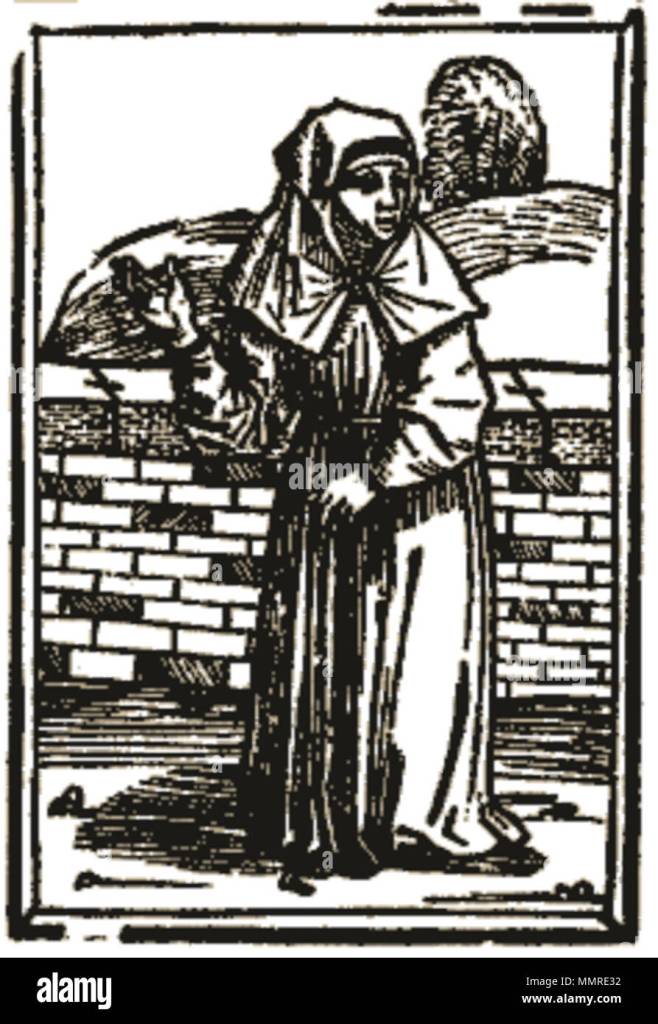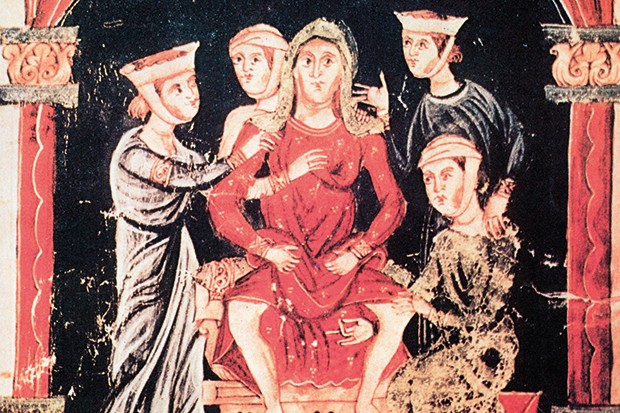Beguines were women who chose to live together. The movement began over eight hundred years ago, mostly in the Low Countries – Holland and Belgium, but also elsewhere in Europe. Beguines were laywomen, not nuns, but they chose to follow a way of life in many ways similar to that of Jesus: voluntary poverty, care for the poor and the sick, and religious (Christian) devotion. They lived independently of men, earned their own money by finding work locally, and deliberately chose not to be a formalised movement.
Despite developing separately across many European countries, there were common elements that these medieval women shared, including their visionary spirituality, their unusual business acumen, and their courageous commitment to the poor and sick. Common to them also was their non-reliance on men, during a time when a woman normally passed passively from her father’s jurisdiction to that of a husband. Maybe the coincidence of the later Crusades, taking many men away from their home countries, allowed many women to grab some independence.

Beguines were essentially self-defined, and resisted the many attempts to control them. They lived in beguinages, which could be a single house for just a few women or even a solitary woman. But beguinages could also be much larger as in Bruges, Brussels, and Amsterdam, where hundreds of women lived together in walled-in groups of houses within a medieval town or city.
No men were allowed to live within the beguinages, though some permitted male visitors. Women were free to leave at any time and a number would leave, to set up their own households, to get married, or to go back home to care for sick relatives.
It would seem that the heyday of the beguines did not last long beyond the last Crusade. Suspicions swirled in some areas about what was going on within the walls of the beguinages. Marguerite Porete, for example, who lived in a beguinage in Paris, was accused of heresy and burned at the stake in 1310. Many others were accused of witchcraft.
Why these women were called Beguines is a mystery, and it may have originally been a pejorative term that the women decided to embrace. In colloquial medieval French, a beguin was a bonnet, and embeguiner was the verb – to wear a bonnet (it could also mean to have a crush on) The bequines certainly used to wear a fairly distinctive style of bonnet. However, it is possible that the origin was the other way around, with a beguine’s distinctive style of headwear becoming a new word for a bonnet.
In later centuries we have had Mary Wollstonecraft, an early feminist who wrote A Vindication of the Rights of Women in 1792, Suffragettes and Suffragists, and waves of feminism from the mid nineteenth century on, as women have always struggled to get and maintain legal, political and social rights on a par with, and independent from, men. But, in many respects, the beguines were there first!
Links to my books and social media
You can find all my books and short stories on Amazon books, At least one story always free. ALL BOOKS FREE ON KINDLE UNLIMITED




